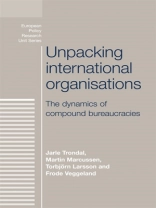This book introduces international bureaucracy as a key field of study for public administration and also rediscovers it as an essential ingredient in the study of international organisations. To what extent, how and why do international bureaucracies challenge and supplement the inherent Westphalian intergovernmental order based on territorial sovereignty? To what extent, how and why do international bureaucracies supplement the existing international intergovernmental order with a multi-dimensional international order subjugated by a compound set of decision-making dynamics?
International bureaucracies constitute a distinct and increasingly important feature of public administration studies. However, the role of international bureaucracies has been largely neglected in most social science sub-disciplines. This book takes a first step into a third generation of international organisation (IO) studies.
It will be of immense value to academics in politics and international relations as well as practitioners in public administration in domestic governments and international organizations.
Inhoudsopgave
List of figures
List of tables
List of authors
Foreword
1. The bureaucracy of international organisations
2. On the principles of organisation of international bureaucracies
Section I
3. The European Commission
4. The OECD Secretariat
5. The WTO Secretariat
Section II
6. Departmental dynamics in international bureaucracies
7. Supranational dynamics in international bureaucracies
8. Epistemic dynamics in international bureaucracies
9. Intergovernmental dynamics in international bureaucracies
Conclusions
10. Complexity and stability in international bureaucracies
References
Appendix
Index
Over de auteur
Frode Veggeland is Senior Researcher at ARENA – Centre for European Studies and at Norwegian Agriculture Economics Research Institute












